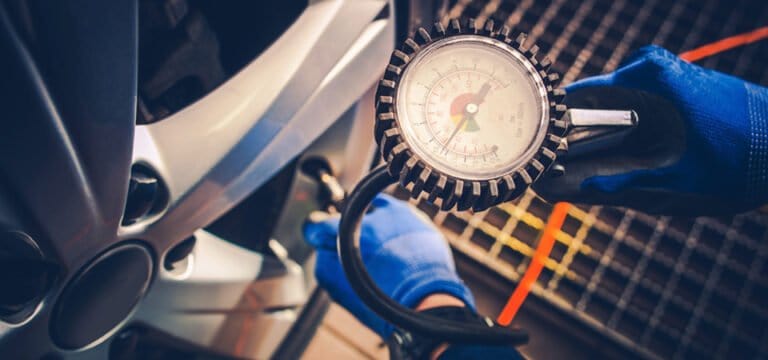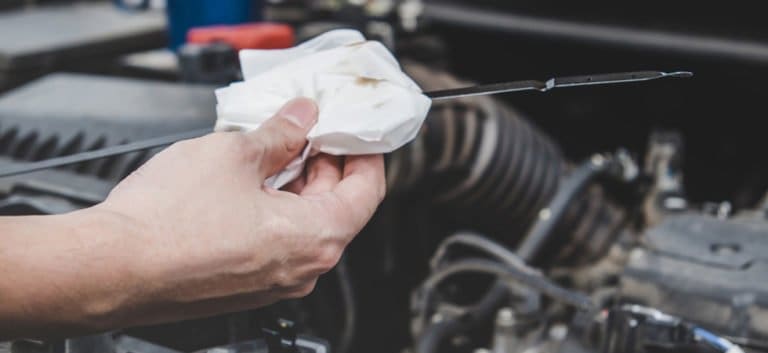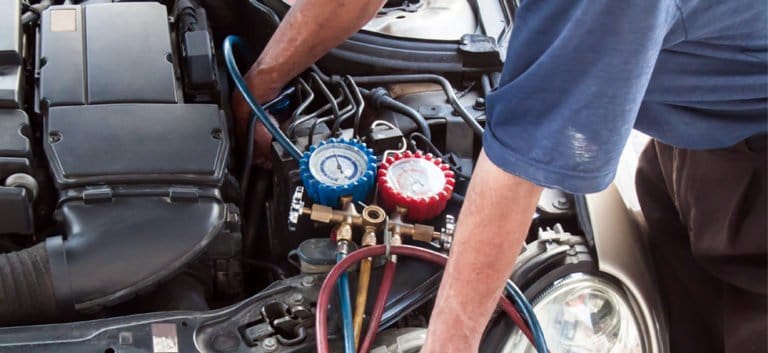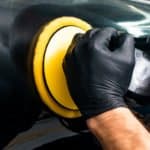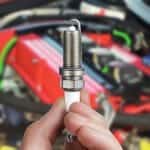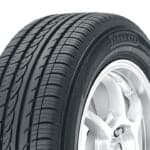Affiliate Disclosure: Some of the links in this post are affiliate links. As an Amazon Associate, we earn from qualifying purchases. Read more in our affiliate policy.
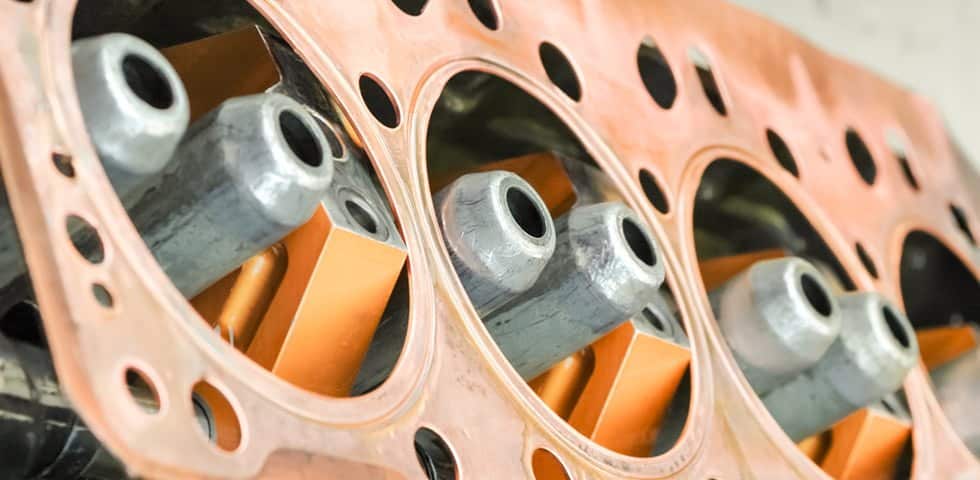
Car Running Rich? Here’s Everything You Should Know
Let’s talk about a car running rich vs lean, the symptoms, the usual causes, and the solutions you can apply to fix your car.
It takes a combination of 2 things in an internal combustion engine to make combustion happen: air and fuel. And it is not just any combination. It has to be the right combination.
That magical combination or ratio is called the stoichiometric air-fuel ratio. For a gasoline engine, this ratio is around 14.7:1 which means that for every 1 part fuel, we would need 14.7 parts of air to completely burn the fuel.
The air-fuel ratio for diesel engines would be around 14.5:1.
Car Running Rich Vs Lean
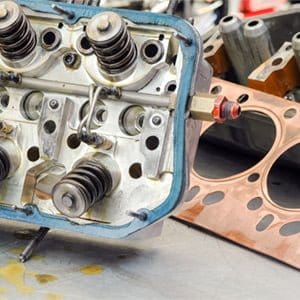
On the other hand, if your engine gets too much air but too little fuel, the car is running lean or you can say that it has a lean mixture or a low air-fuel ratio.
Either of these conditions will contribute to poor engine performance and ultimately, potential engine damage.
What Can Happen if the Engine Keeps on Running Rich?
Because it is not a perfect world, the stoichiometric air-fuel ratio is rarely achieved and engines could run slightly rich if it is cold or when you are accelerating or if it is under heavy load. It becomes a problem when it becomes too rich.
If you leave your vehicle unchecked, a rich-running car could cause premature wear of the engine and emission systems and degrade your car’s acceleration, mileage, and catalytic converter just to name a few.
Car Running Rich Symptoms
Some symptoms are immediately noticeable while others would require more observation and monitoring.
-
A rotten egg smell is coming from the exhaust.
The unburned excess fuel will unleash that funky smell into the exhaust manifold and then to the tailpipe.
If the fuel mixture is too rich, the excess exhaust fumes become too much for the catalytic converter to handle and it cannot burn them all.
-
Check engine light is on or flashing.
The Engine Control Unit has the ability to adjust the air-fuel ratio if it is slightly rich.
But if it has to make up for an anomaly that is more than what it is designed to handle, a P0172 code will show on an OBD-II scanner if your check engine light is flashing.
-
Your vehicle is idling rough.
If you feel a bouncing sensation when your car is idle, the car could be running rich. The engine may also have a rough feel when it is running.
If you watch the tachometer, you would see that it jumps all over the place.
-
You have been refilling more often…
… but you do not really get too far and you are not getting the most out of each pump. A rich-running engine burns more fuel than it needs which hurts fuel economy.
It is perfectly normal though for your vehicle to deliver less mileage for each gallon in colder months so you may want to keep that in mind if you notice that trips to the gas station are becoming more frequent.
-
Your car did not get a clean bill of emissions health.
An engine running rich will emit seriously high levels of carbon monoxide and will, therefore, fail an emissions test.
If your state does not require an emissions test and you suspect that your car is running rich, you may want to get your vehicle tested as exposure to unhealthy levels of carbon monoxide could cause tissue, brain, and cardiac damage/complications, or death.
-
There is a decline in your engine’s performance.
For a smooth run, the engine needs that perfect air-fuel mixture.
While it may be tempting to think that more fuel means more power and therefore better performance, it is not entirely true. Excess fuel that does not get combusted will harm your engine.
-
Soot and deposits have made their way to some parts.
Spark plugs could become carbon-fouled. You will see dry soot on the bottom of your spark plugs which will eventually impact the engine’s performance.
And as we had discussed earlier, unburned excess fuel could clog up the catalytic converter and this may require cleaning the filter, or even replacing it.
Engine Running Rich Causes
The air-fuel mixture is managed by the Engine Control Unit (ECU). It accomplishes this job through the fuel injector, manifold absolute pressure, and the oxygen, emission, and mass airflow sensors.
It, therefore, makes perfect sense to look into these components when you have a rich-running engine.
These same components, when they go bad, could also cause your car to run lean as they regulate how air, temperature, and fuel interact with the engine.
-
Bad mass airflow (MAF) sensor
MAF sensor, Image: Wikipedia The MAF sensor identifies the air-fuel mixture that needs to be added by measuring the amount of air that is coming into the engine.
If it is clogged up or has gone bad, it will not be to detect and report the correct amount of air and could cause the engine to run rich.
-
Bad manifold absolute pressure (MAP) sensor
Some cars have a MAP sensor instead of a MAF sensor. The MAP sensor takes note of the air-fuel mixture by measuring the air pressure in the intake manifold.
-
Bad oxygen sensor
Oxygen sensors can be found in the exhaust pipe. They sense the air-fuel mixture from the previous combustion. If the oxygen sensor detects a rich mixture, it will alert the ECU and tell it to deliver less fuel on the next combustion.
-
Bad engine coolant temperature sensor
If you have a cold engine, it is going to need more fuel to run. The engine coolant temperature sensor determines the coolant’s temperature and uses that information to know if the engine needs more fuel.
If it reads the temperature wrong, it could cause more fuel to be delivered to the engine than necessary.
-
Bad intake temperature sensor
The intake temperature sensor is often placed inside the MAF sensor. It identifies if fuel should be added or withheld based on the temperature of the air entering the engine.
-
Bad fuel pressure regulator
A fuel pressure regulator controls the pressure of the fuel sent to the fuel injectors on an engine. If it is not working as it should, it could lead to too rich a mixture.
-
Faulty spark plugs
Faulty spark plugs can create misfires which in turn affect the oxygen sensors and we now all know what an oxygen sensor does and what happens if it does not do its job.
How to Fix Rich Air Fuel Mixture
If your vehicle is manifesting some of the symptoms that we described earlier, you yourself or with the help of a trusted mechanic, look into these tips to get to the bottom of the trouble.
-
Clean the mass airflow (MAF) sensor.
So that it correctly detects the air coming into the engine, see to it that the MAF sensor is clean. Detach it and clean it with a mass airflow cleaner.
-
Check the flap of the air duct.
The flap should close partially when you turn the engine on and it will open up completely when your car is warmed up. If it behaves differently, head right over to your mechanic so that they can look into it for you.
-
Check if the vacuum line is loose or has a leak.
If the vacuum line is not securely connected or if it has a leak, it can cause your car to run rich.
-
Replace the oxygen sensor.
Or ask your mechanic if you need a new one.
If you did not find anything wrong or amiss at all with the MAF sensor, vacuum lines, and the air duct flap, the oxygen sensor may be to blame. -
Replace the spark plugs.
While spark plugs themselves do not directly cause your car to run rich, it produces misfires and affects sensors which in turn cause a rich-running engine.
Worn-out spark plugs will also not generate the needed spark required to effectively burn fuel and will dump the excess fuel into the exhaust and damage the catalytic converter.
Car Running Rich – The Conclusion
A major part of ensuring your vehicle’s longevity is by taking care of its engine. Every part of the engine is important and the engine is just as strong as its weakest part.
Enough attention, care, and maintenance must be given to the parts that help your engine operate. The effects of not doing so will eventually catch on in ways that are usually costly.
So dust off those air filters, clean those parts that need cleaning, fit parts that are recommended by your manufacturer, and have your vehicle routinely checked.
And as you may get reminded every so often, safety is of utmost priority. It would not hurt if we throw in the economy into that too, with all the trouble and money that you will be able to save by keeping your engine in the best condition it could be.
We hope this post answered your questions on the car running rich symptoms, causes, and possible fixes. Thanks for reading, and to the next one!
– The team at garagechief.com
Disclaimers
All product names, logos, and brands are property of their respective owners. All company, product and service names used in this website are for identification purposes only. Use of these names, logos, and brands does not imply endorsement.
It is our policy to make every effort to respect the copyrights of outside parties. If you believe that your copyright has been misused, please provide us with a message stating your position and we will endeavor to correct any misuse immediately.
Some of the links in this post are affiliate links. As an Amazon Associate, we earn from qualifying purchases. This means if you click on the link and purchase the item, we may receive an affiliate commission, at no extra cost to you. This helps us keep this website alive. Read more in our affiliate policy.
 The unburned excess fuel will unleash that funky smell into the exhaust manifold and then to the tailpipe.
The unburned excess fuel will unleash that funky smell into the exhaust manifold and then to the tailpipe.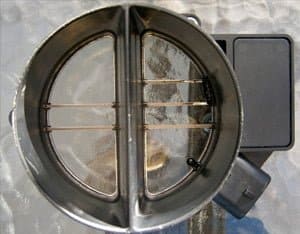
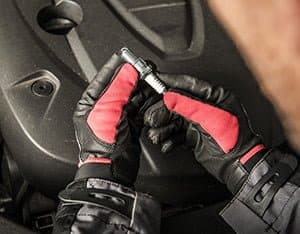 While spark plugs themselves do not directly cause your car to run rich, it produces misfires and affects sensors which in turn cause a rich-running engine.
While spark plugs themselves do not directly cause your car to run rich, it produces misfires and affects sensors which in turn cause a rich-running engine.